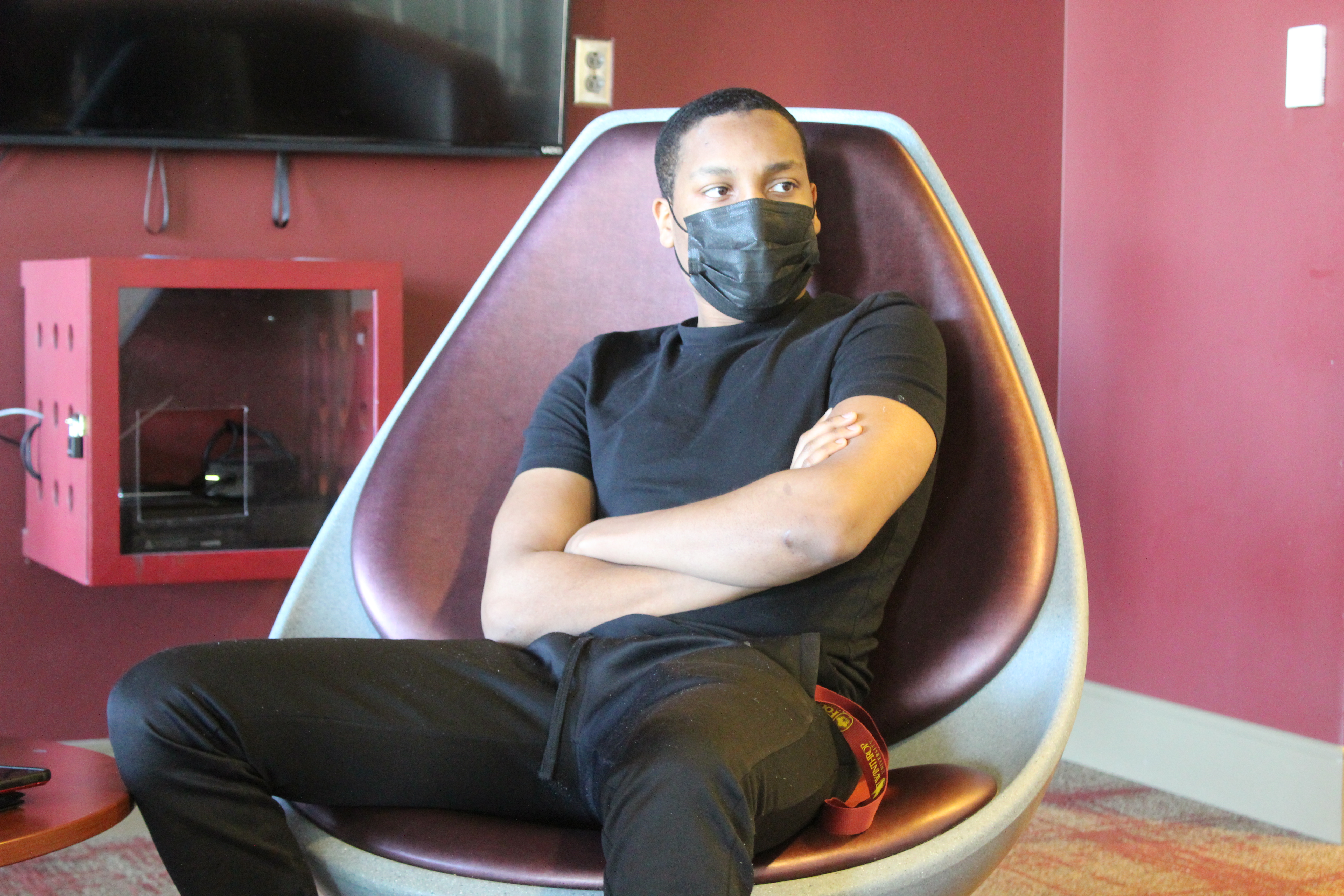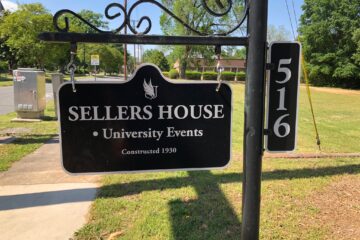In order to help enforce COVID-19 safety guidelines like mask-wearing, social distancing and proper sanitization practices, Winthrop has hired nine students to the position of Campus Safety Ambassador (CSA) and is in the process of hiring two
more students to the position as of late last week. The CSAs are directed to report students not following guidelines to the Dean of Students Office, which will then issue such students $25 citations.
“The Campus Safety Ambassadors will have multiple functions,” says Anthony K. Davis, interim dean of students. “Primarily, they will work to spread awareness about COVID-19, but will also support Student Affairs staff in upholding Winthrop
University’s COVID-19 safety guidelines pertaining to physical distancing and masking in common areas such as DIGS, West Center, etc.”
The CSA program began on Friday, March 5, and the Dean of Students Office has already begun issuing citations as a result of the ambassadors’ work.
“CSAs are expected to address and document all violations of Winthrop University policy… CSAs will have the ability to issue citations but will not initially. They will, however, report incidences and violations to the Dean of Students Office, who will then issue $25 citations,” Davis said.
CSAs are paid $10 per hour and are also eligible to receive incentives such as meal vouchers for doing good work, according to Davis. The university brought about this program in response to an increase of students growing fatigued in following COVID-19 safety guidelines. Faculty members have reported an increase in students not following safety guidelines as it is nearing an entire year from the start of the virus taking its toll on the nation.
President George Hynd at the Feb. 19 Board of Trustees meeting said, “We’ve hired six Campus Safety Ambassadors to monitor students about masking up and those students that parentally seem to be without a mask will be issued citations.
Needless to say, it’s something that I think we need to do because one thing we’ve observed is when a staff member or faculty member walks into a room, some students may have forgotten to put their mask on, so the masks immediately come up. What we’re not sure about is what happens when we leave the room. So, the safety ambassadors will be coming at odd hours around campus to make sure students are continuing [to follow guidelines].”
Some students feel that the CSA program may not be entirely necessary and are even uncomfortable with the idea that CSAs themselves are students that will be monitoring others in such a close manner.
“I am not 100% sure of my support for [the CSA program] just because sometimes putting students in charge of governing other students can go wrong… Everyone I see does a pretty good job [at following COVID-19 safety guidelines]. I live in the dorms so you kind of expect to see people in the hallways not following the guidelines, but I’ve never seen someone like that or anywhere else on campus. I think most people are pretty good about it,” said Sam Bell, a freshman graphic design major.
In designing the CSA program, it is not the intention of the Dean of Students Office for CSAs to be undercover or not easily recognized by other students. They are not meant to be seen as student police, but rather as ambassadors for the wellbeing and safety of the entire Winthrop community during the pandemic, and even after the pandemic.
“They’re not actively seeking people breaking the rules,” said Amy Sharpe, executive assistant to the dean of students. “We’re trying to make it to where their job is fun, and people don’t look at them like campus police. That’s what we don’t want because it is supposed to be about safety. It’s supposed to be not just about wearing your mask, but also don’t text and walk downstairs, for example. The program came about because of COVID, but our hope is that it will continue after COVID. Campus Safety Ambassadors will be a new group, per se. Our campus safety group.”
Some students are hopeful that the CSA program will make strides towards returning to traditional learning as early as next semester.
“I think what they’re doing is good, because even though the pandemic is slowing down, if we just stop all precautions and protocols, then it’ll just come back, and we’ll get more cases, and then we’ll have to close businesses again, and maybe even close schools. So, I think the [CSA] program is good, and I think if we keep following these protocols, next semester, we’ll be able to come back without a mask,” said Dylan Bower, a sophomore business administration major.
Students, faculty and staff should expect to see Campus Safety Ambassadors around campus, in uniform, for the rest of the semester, and possibly in subsequent semesters even when pandemic protocols are not in place, because it is the university’s intention to foster a safe campus for everyone regardless of a pandemic.
Photo by Jamia Johnson




